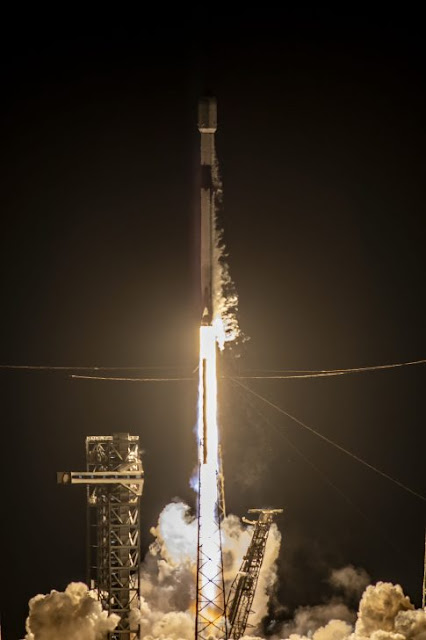The most recent launch of SpaceX's Starlink internet satellite, which occurred late last night from Florida's Cape Canaveral Space Force Station, was the first time that 200 rockets have been launched from Earth by humans. In a space age that has witnessed a marked growth in global interest in astronautics that is unparalleled since the Apollo era, which saw the first humans land on the moon, this sets a new record in the global space industry as SpaceX and Chinese rocket launches continue to launch countless satellites.
Despite shying away from its own self-imposed target of 100 rocket launches, SpaceX comfortably beats its 2022 launch cadence.
For SpaceX's Falcon 9 rocket, the last few years have been crucial. As the only fully reusable medium lift launch vehicle in the world, SpaceX has consistently pushed the limits of reusability with the Falcon 9. By successfully launching a single Falcon 9 first stage booster 17 times in 2023, SpaceX broke the previous record for rocket reusability. In addition, the company has achieved a new record this month by completing 100 launches in 365 days.
SpaceX began December on a high note, launching four rockets in eight days, but was compelled to repeatedly stand down for the most recent Starlink launch and an impending launch of the Falcon Heavy for the Space Force. 2023 is now nearing its end. This made it difficult for the company to launch 100 rockets in a calendar year because there was a nine-day lag between the previous launch and yesterday's Starlink launch.
Though it is unlikely that SpaceX will launch 100 rockets in 2023, the launch of Starlink on Monday night was the first time that 200 rockets had been launched into space by the entire world.
Astronomer Jonathan McDowell posted the information regarding the most recent Starlink launch, which commemorated 200 launches worldwide, on X. McDowell is a meticulous rocket tracker and recorder, and he posted on social media that the mission's international designator changed to 2023-200 once the Falcon 9's second stage entered parking orbit.
For the Falcon 9 second stage, a parking orbit is an interim orbit where the rocket waits to get closer to its ultimate trajectory. Prior to reaching their final altitude, SpaceX's Starlink satellites use parking orbits to test their systems and deorbit themselves in the event of an anomaly. SpaceX has also frequently cited this orbit as evidence of the sustainability of its satellites because any malfunctioning spacecraft burn up in the Earth's atmosphere without leaving any space debris behind.
Now that the Starlink launch has occurred, SpaceX plans to carry out five more launches before concluding its operations in 2023. As of right now in 2023, SpaceX has successfully launched 92 rockets; 88 of those were Falcon 9 rockets, and the remaining rockets were Falcon Heavy rockets. Since the Falcon 9 has launched more than fifty missions for SpaceX's internet subsidiary, the majority of its launches have been for the Starlink constellation. After two Starship launches this year, the total number of launches for SpaceX is now 94. If the company is able to launch five more missions, its 2023 total launches will reach an alluring 99.

